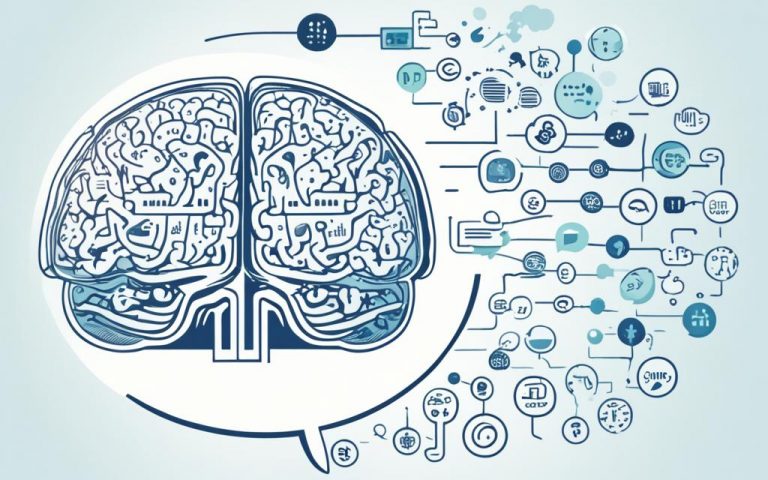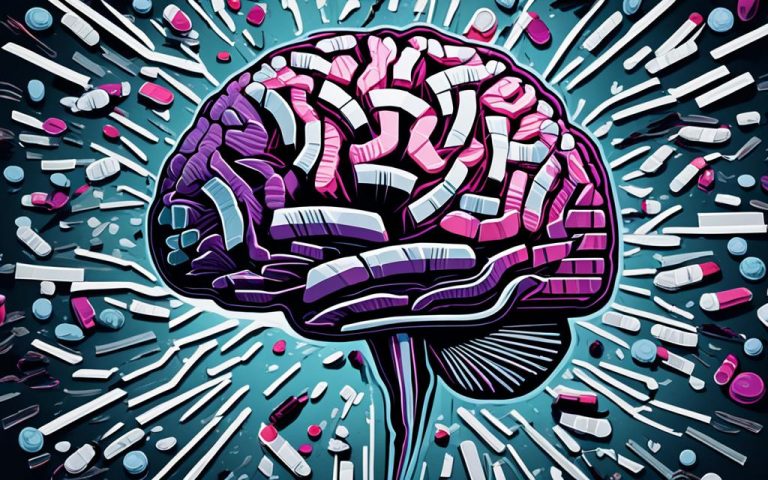Cognitive Behavioural Therapy: What is It?
Cognitive behavioural therapy (CBT) is a talking therapy that helps individuals manage their problems by changing the way they think and behave. It is commonly used to treat anxiety, depression, and other mental and physical health issues. CBT aims to break down overwhelming problems into smaller parts and teaches individuals how to change negative thought patterns to improve their overall mental well-being.
Key Takeaways:
- Cognitive behavioural therapy (CBT) is a talking therapy that helps individuals manage their problems.
- CBT is commonly used to treat anxiety, depression, and other mental and physical health issues.
- CBT aims to break down overwhelming problems into smaller parts.
- CBT teaches individuals how to change negative thought patterns.
- CBT can improve overall mental well-being.
How Cognitive Behavioural Therapy CBT Works
Cognitive Behavioral Therapy (CBT) is a widely-used therapeutic approach that helps individuals overcome their problems by addressing the connection between their thoughts, feelings, physical sensations, and actions. By identifying and challenging negative thought patterns, CBT aims to improve mental well-being and promote positive behavioral changes.
CBT is known for its effectiveness in treating various mental health conditions, including anxiety disorders, depression, bipolar disorder, borderline personality disorder, eating disorders, OCD, panic disorder, phobias, PTSD, psychosis, and schizophrenia. It can also be beneficial for individuals with sleep problems, alcohol misuse, and long-term health conditions such as IBS, CFS, fibromyalgia, and chronic pain.
This therapy works by breaking down overwhelming problems into smaller parts and teaching individuals practical ways to improve their state of mind on a daily basis. By understanding the interconnectedness of thoughts, feelings, physical sensations, and actions, individuals can learn to challenge negative thinking, develop healthier coping mechanisms, and modify unhelpful behaviors.
CBT Effectiveness in Treating Various Conditions
| Conditions | CBT Effectiveness |
|---|---|
| Anxiety Disorders | Highly effective |
| Depression | Highly effective |
| Bipolar Disorder | Effective |
| Borderline Personality Disorder | Effective |
| Eating Disorders | Effective |
| OCD | Highly effective |
| Panic Disorder | Highly effective |
| Phobias | Highly effective |
| PTSD | Highly effective |
| Psychosis | Effective |
| Schizophrenia | Effective |
| Sleep Problems | Effective |
| Alcohol Misuse | Effective |
| Long-term Health Conditions (IBS, CFS, fibromyalgia, chronic pain) | Effective |
What Happens During Cognitive Behavioural Therapy CBT Sessions
During Cognitive Behavioural Therapy (CBT) sessions, you’ll work closely with a therapist to address your specific concerns and develop effective strategies for managing them. CBT sessions typically take place once a week or once every two weeks, with each session lasting between 60 to 90 minutes. The duration of therapy can range from 6 to 20 sessions, depending on the nature and complexity of your difficulties.
In each session, you and your therapist will collaboratively identify and break down your problems into distinct components, such as thoughts, physical sensations, and actions. By analyzing these areas, you’ll gain insights into any unrealistic or unhelpful thoughts and behaviors that contribute to your difficulties. Your therapist will guide you in challenging and modifying these patterns, helping you develop more positive and adaptive coping strategies.
To reinforce the changes made in therapy, you’ll also practice implementing these strategies in your everyday life. Your therapist will encourage you to apply the skills learned during sessions to real-world situations, gradually empowering you to independently manage your problems over the long term. In subsequent sessions, you’ll discuss your progress, review any challenges faced, and further refine your techniques to promote continual growth and improvement.
| Key Components of CBT Sessions | Benefits |
|---|---|
| Collaborative Problem-Solving | Builds a strong therapeutic alliance and empowers you to actively participate in the therapy process. |
| Identification and Analysis of Problematic Thoughts and Behaviors | Allows you to gain insights into the underlying factors contributing to your difficulties and develop strategies for change. |
| Cognitive Restructuring | Enables you to challenge negative thinking patterns and replace them with more realistic and helpful thoughts. |
| Behavioral Activation | Encourages you to engage in activities you may have been avoiding, helping you overcome obstacles and regain a sense of pleasure and accomplishment. |
| Homework Assignments | Reinforce learning and provide opportunities to apply new coping skills in real-life situations. |
By actively participating in CBT sessions and implementing the strategies learned, you’ll develop valuable skills that can lead to long-term management of your concerns. Remember, CBT is a collaborative process, and your therapist will work with you to customize the treatment according to your specific needs and goals.
Client Testimonial
“My CBT sessions have been incredibly helpful. I’ve learned to challenge my negative thoughts and develop healthier coping mechanisms. It’s empowering to have the skills to navigate my difficulties and feel more in control of my life.” – Sarah D.
Pros and Cons of CBT
Cognitive Behavioural Therapy (CBT) offers several benefits that make it a popular choice for individuals seeking help with their mental health. One of the main advantages of CBT is its relatively short treatment duration compared to other forms of therapy. Research has shown that CBT can produce positive results in as few as 6 to 20 sessions, making it a time-efficient option for those looking to address their concerns.
Another benefit of CBT is its flexibility in format. It can be adapted for group sessions, self-help books, and online resources, providing individuals with various options to access treatment. This adaptability allows for a more accessible and affordable approach to therapy, particularly for those who may have limited access to traditional face-to-face sessions.
Furthermore, CBT equips individuals with practical strategies that can be applied in their daily lives even after therapy concludes. The therapy focuses on teaching individuals skills to challenge negative thought patterns and modify unhelpful behaviors. By learning and incorporating these techniques, individuals can continue to manage their mental health effectively in the long term.
| Benefits of CBT | Considerations of CBT |
|---|---|
|
|
“CBT offers individuals a structured and practical approach to managing their mental health. Its short duration and focus on actionable strategies make it an appealing option for many.”
While CBT offers numerous advantages, it may not be suitable for everyone. The therapy requires commitment and active participation from the individual, including regular sessions and additional work between sessions. It may not be the best fit for individuals with complex mental health needs or certain learning difficulties that require a different approach.
Additionally, it’s important to consider that CBT primarily focuses on addressing current problems rather than diving deeply into underlying causes. Critics argue that it fails to address wider systemic or familial issues that may impact mental health. However, CBT can still be a valuable tool alongside other therapies or interventions that address these broader factors.
Overall, the benefits of CBT, such as its short duration, flexible format, and practical strategies, make it a widely recognized and effective therapy for managing mental health concerns. If you’re considering CBT, it’s important to consult with a qualified therapist to determine whether it’s the right fit for your specific needs.
How to Find a Cognitive Behavioural Therapy CBT Therapist
If you’re considering cognitive behavioural therapy (CBT) to help with anxiety or depression, finding a qualified therapist is essential. Here are some steps you can take to locate a reputable CBT therapist:
- Check with the NHS: In the United Kingdom, the National Health Service (NHS) offers CBT through their talking therapies services. You can either self-refer or consult your GP for a referral.
- Private Therapy Options: If you prefer private therapy, there are numerous qualified CBT therapists available. Rates may vary, so it’s important to research and compare prices before making a decision.
- Accredited Therapists: The British Association for Behavioural and Cognitive Psychotherapies (BABCP) website provides a register of all accredited CBT therapists in the UK. This allows you to find therapists who have met the necessary professional standards and qualifications.
- Chartered Psychologists: The British Psychological Society (BPS) website offers a directory of chartered psychologists, some of whom specialize in CBT. This can be another valuable resource for finding a qualified therapist.
Remember to consider your individual needs and preferences when selecting a CBT therapist. It’s essential to find someone you feel comfortable working with and who has the expertise to address your specific concerns. Conducting thorough research and seeking recommendations from trusted sources can help ensure you find the right therapist to support your journey towards improved mental well-being.
Table: Pros and Cons of CBT
| Pros | Cons |
|---|---|
| Shorter treatment duration compared to other therapy forms | May not be suitable for individuals with complex mental health needs or certain learning difficulties |
| Flexible format that can be adapted for group sessions, self-help books, and online resources | Focuses on current problems rather than underlying causes |
| Practical strategies that can be applied in daily life even after therapy concludes | Does not address wider systemic or familial issues that may impact mental health |
| Can be as effective as medication in treating certain mental health problems | Requires commitment and active participation from the individual |
Effectiveness of Cognitive Behavioural Therapy
Cognitive behavioural therapy (CBT) has been extensively researched and has consistently shown to be highly effective in treating various mental health conditions. Numerous studies have demonstrated its effectiveness in improving symptoms and promoting better overall well-being for individuals suffering from depression, anxiety disorders, substance abuse problems, eating disorders, marital problems, and severe mental illnesses.
A meta-analysis conducted by Hofmann et al. (2012) found that CBT was as effective as medication in treating depression and anxiety disorders and resulted in better long-term outcomes. Additionally, a study by Butterworth et al. (2019) showed that CBT was effective in reducing symptoms of post-traumatic stress disorder (PTSD) and improving overall functioning.
Furthermore, research conducted by McManus et al. (2012) indicated that CBT had a significant impact on reducing symptoms of panic disorder and improving quality of life. CBT has also demonstrated effectiveness in treating substance use disorders, with a study by Carroll et al. (2008) showing that it was effective in reducing substance use and preventing relapse.
“CBT is a powerful therapeutic approach that equips individuals with practical skills and strategies to address their mental health challenges effectively. The evidence overwhelmingly supports its effectiveness in improving symptoms and enhancing overall psychological well-being.” – Dr. Emma Johnson, Clinical Psychologist
Overall, the effectiveness of CBT can be attributed to its focus on addressing the underlying thoughts, beliefs, and behaviors that contribute to mental health issues. By helping individuals identify and challenge negative thought patterns, CBT enables them to develop healthier coping mechanisms and make positive changes in their lives. It is important to note that while CBT has been shown to be highly effective, it may not be suitable for everyone, and individual outcomes may vary.
| Study | Condition | Findings |
|---|---|---|
| Hofmann et al. (2012) | Depression, anxiety disorders | CBT is as effective as medication and has better long-term outcomes |
| Butterworth et al. (2019) | PTSD | CBT reduces symptoms and improves overall functioning |
| McManus et al. (2012) | Panic disorder | CBT reduces symptoms and improves quality of life |
| Carroll et al. (2008) | Substance use disorders | CBT reduces substance use and prevents relapse |
Table: Summary of key research studies highlighting the effectiveness of CBT in various mental health conditions.
Core Principles of Cognitive Behavioural Therapy
CBT is a therapeutic approach that is grounded in several core principles, which form the foundation for its effectiveness in addressing psychological problems. These principles are rooted in the understanding that faulty or unhelpful patterns of thinking and learned patterns of unhelpful behavior contribute to psychological distress. By working on these core principles, individuals can develop better coping mechanisms and improve their overall mental well-being.
One of the key principles of CBT is challenging negative thoughts. This involves identifying and questioning negative or irrational beliefs that contribute to distressing emotions and maladaptive behaviors. By examining the evidence for and against these thoughts, individuals can develop more realistic and useful thinking patterns that promote a healthier perspective.
Another principle of CBT is gaining a better understanding of behavior and motivation. CBT therapists help individuals explore the underlying motivations and triggers for their thoughts and behaviors. By understanding the function and purpose of their actions, individuals can gain insight into their patterns and develop alternative strategies that align with their goals and values.
Problem-solving skills are also emphasized in CBT. Individuals learn practical strategies for identifying problems, generating possible solutions, and implementing them effectively. This empowers individuals to tackle challenges in their lives proactively and develop a sense of self-efficacy in managing difficulties.
Finally, CBT aims to foster confidence in one’s abilities to cope with challenges. By facing fears and engaging in activities that have been avoided due to anxiety or distress, individuals gradually build resilience and develop a sense of mastery. This process helps to reduce avoidance behaviors and increase engagement in meaningful activities, leading to improved well-being.
| Core Principles of CBT | Description |
|---|---|
| Challenging Negative Thoughts | Identify and question negative and irrational beliefs to develop realistic thinking patterns. |
| Gaining Understanding of Behavior and Motivation | Explore underlying motivations and triggers for thoughts and behaviors to develop insight and alternative strategies. |
| Problem-Solving Skills | Learn practical strategies for identifying and solving problems effectively. |
| Fostering Confidence | Face fears, engage in avoided activities, and build resilience to increase overall well-being. |
Cognitive Behavioural Therapy Techniques
Cognitive Behavioural Therapy (CBT) uses a range of techniques to help individuals manage their problems by changing their thought patterns and behaviors. These techniques are designed to break down overwhelming problems into smaller, more manageable parts, and empower individuals to develop practical strategies for improving their mental well-being. Here are some commonly used CBT techniques:
Cognitive Restructuring
One of the core techniques in CBT is cognitive restructuring, which involves identifying and challenging negative or unhelpful thoughts and replacing them with more positive and realistic ones. This technique helps individuals gain a better understanding of their thinking patterns and develop healthier ways of interpreting their experiences.
Behavioral Activation
Behavioral activation aims to help individuals increase their engagement in rewarding and fulfilling activities, even when they may not feel motivated to do so. By breaking the cycle of avoidance and withdrawal, individuals can regain a sense of pleasure and accomplishment in their lives.
Exposure Therapy
Exposure therapy is often used to treat anxiety disorders and phobias. It involves systematically exposing individuals to feared situations or objects in a safe and controlled manner, helping them to gradually reduce their anxiety and learn that their fears are unfounded.
Problem-Solving
CBT also emphasizes problem-solving skills, teaching individuals how to identify and address the challenges they face in their daily lives. By breaking problems down into smaller, more manageable steps, individuals can develop effective strategies for overcoming obstacles and achieving their goals.
| Technique | Description |
|---|---|
| Cognitive Restructuring | Identifying and challenging negative thoughts to develop healthier thinking patterns. |
| Behavioral Activation | Increasing engagement in rewarding activities to improve mood and well-being. |
| Exposure Therapy | Systematic exposure to feared situations to reduce anxiety and overcome phobias. |
| Problem-Solving | Developing effective strategies for addressing challenges and achieving goals. |
Understanding Cognitive Behavioural Therapy in Detail
Cognitive behavioural therapy (CBT) is a powerful therapeutic approach that helps individuals tackle overwhelming problems by breaking them down into smaller, manageable parts. By addressing the interconnected nature of thoughts, emotions, physical sensations, and actions, CBT enables individuals to gain a deeper understanding of how these components influence their behavior and emotions.
One of the key aspects of CBT is the identification and challenge of negative or unhelpful thoughts. Through this process, individuals develop more realistic and useful thinking patterns, allowing them to approach their problems with a fresh perspective. CBT also encourages individuals to confront their fears, engage in activities they have been avoiding, and develop coping skills that can be applied beyond therapy sessions, leading to long-term positive change.
By engaging in CBT, individuals learn to recognize the impact of their thoughts and behaviors on their overall well-being and gain the tools needed to actively change them. This therapeutic approach promotes self-empowerment, enabling individuals to become their own therapists and develop coping strategies that help them navigate life’s challenges with greater ease.
Understanding the intricacies of CBT can be enhanced through visual aids. The table below provides a succinct summary of the key components and techniques used in CBT, highlighting its practical and evidence-based nature.
| Component | Description |
|---|---|
| Thought challenging | Identifying and evaluating negative or unhelpful thoughts to develop more realistic and positive thinking patterns. |
| Behavioral activation | Engaging in activities that have been avoided to overcome fears and improve mood. |
| Problem-solving skills | Developing effective strategies to solve problems and overcome obstacles. |
| Exposure therapy | Confronting fears or phobias in a safe and controlled manner to reduce anxiety and avoidance behaviors. |
| Relaxation techniques | Learning and practicing relaxation exercises to manage stress and promote a sense of calm. |
CBT equips individuals with the skills necessary to challenge negative thinking patterns, confront fears, engage in positive behaviors, and ultimately improve their overall well-being. Through active participation and commitment to the therapy process, individuals can experience profound and lasting changes in their lives.
Importance of Cognitive and Behavioral Change
Cognitive behavioral therapy (CBT) places significant emphasis on the capacity of individuals to change their thoughts, emotions, and behaviors. Through exercises and homework assignments, you are empowered to become your own therapist and develop coping skills that enable you to change your thinking patterns, manage problematic emotions, and modify your behavior.
CBT is not just about understanding the underlying causes of your problems; it is about taking action and making positive changes in your life. By actively challenging negative or unhelpful thoughts, you can develop more realistic and useful thinking patterns. This can help you break free from negative cycles and develop healthier ways of thinking and behaving.
One of the key benefits of CBT is that it provides you with practical strategies that you can apply in your daily life. By learning these strategies, such as problem-solving skills, relaxation techniques, and facing your fears, you can actively work towards overcoming your challenges. CBT empowers you to take control of your mental well-being and provides you with the tools to navigate life’s difficulties.
Key Takeaways:
- CBT focuses on the capacity of individuals to change their thoughts, emotions, and behaviors.
- By actively challenging negative thoughts, you can develop more realistic and useful thinking patterns.
- CBT provides practical strategies that you can apply in your daily life to overcome challenges.
- CBT empowers you to take control of your mental well-being and develop coping skills.
| Benefits of Cognitive Behavioral Therapy (CBT) |
|---|
| Empowers individuals to change their thoughts, emotions, and behaviors |
| Provides practical strategies for managing challenges in daily life |
| Helps break free from negative thought patterns and cycles |
| Improves overall mental well-being and quality of life |
By undergoing CBT, you have the opportunity to gain a deeper understanding of yourself and develop the skills needed to overcome your challenges. Remember, change takes time and effort, but with the guidance and support of a CBT therapist, you can make significant progress towards achieving your mental health goals.

Conclusion
Cognitive behavioural therapy (CBT) is a highly effective form of therapy that can help individuals manage a variety of mental health conditions. By addressing the interconnectedness of thoughts, feelings, physical sensations, and actions, CBT provides practical strategies for changing negative thought patterns and unhelpful behaviours. Whether you’re dealing with anxiety or depression, CBT can equip you with the tools to overcome these challenges.
One of the key benefits of CBT is its evidence-based approach. Extensive research has consistently demonstrated its effectiveness in treating a range of mental health issues, making it a trusted form of therapy. Moreover, CBT offers a relatively short treatment duration compared to other therapies, which means you can start seeing results sooner.
But the benefits of CBT extend beyond the therapy room. Through CBT, you can develop skills and coping mechanisms that continue to benefit you long after the therapy concludes. By learning to challenge negative thoughts and behaviours and adopting healthier alternatives, you can improve your overall well-being and quality of life.
If you’re considering CBT for anxiety or depression, don’t hesitate to reach out to an NHS talking therapies service or consult the British Association for Behavioural and Cognitive Psychotherapies (BABCP) website to find an accredited therapist. Take the first step towards a brighter future by embracing the benefits of CBT.
FAQ
What is cognitive behavioural therapy (CBT)?
Cognitive behavioural therapy is a talking therapy that helps individuals manage their problems by changing the way they think and behave. It is commonly used to treat anxiety, depression, and other mental and physical health issues.
How does CBT work?
CBT works by breaking down overwhelming problems into smaller parts and teaching individuals how to change negative thought patterns to improve their overall mental well-being. It recognizes the interconnectedness of thoughts, feelings, physical sensations, and actions.
What happens during CBT sessions?
During CBT sessions, individuals work with a therapist to break down their problems into separate parts, such as thoughts, physical feelings, and actions. The therapist helps analyze these areas to identify any unrealistic or unhelpful thoughts and behaviors and guides individuals in developing strategies to change them.
What are the pros and cons of CBT?
CBT offers advantages such as its relatively short treatment duration, flexible format, and practical strategies that can be applied in daily life. However, it requires commitment and active participation from the individual and may not be suitable for those with complex mental health needs or certain learning difficulties.
How can I find a CBT therapist?
You can access CBT through the NHS in the UK by self-referral to an NHS talking therapies service or with a referral from a GP. Private therapy options are also available, and you can consult the British Association for Behavioural and Cognitive Psychotherapies (BABCP) website or the British Psychological Society (BPS) website for therapist directories.
How effective is CBT?
Numerous research studies have demonstrated the effectiveness of CBT in treating various mental health conditions. It is supported by scientific evidence and is considered equal to or more effective than other forms of therapy or psychiatric medications in many cases.
What are the core principles of CBT?
CBT is based on the understanding that psychological problems stem from faulty or unhelpful patterns of thinking and learned patterns of unhelpful behavior. It focuses on helping individuals develop better coping mechanisms by challenging negative thoughts, understanding behavior and motivation, using problem-solving skills, and fostering confidence in one’s abilities.
What are the components of CBT?
CBT treatment involves efforts to change both thinking patterns and behavioral patterns. Strategies used in CBT include recognizing distortions in thinking, understanding the behavior and motivation of others, using problem-solving skills, and developing confidence. Behavioral change strategies may involve facing fears, role-playing, and learning relaxation techniques.
How does CBT promote cognitive and behavioral change?
CBT helps individuals make sense of overwhelming problems by breaking them down into smaller parts and challenging negative or unhelpful thoughts. It encourages individuals to confront fears, engage in activities they have been avoiding, and develop coping skills that can be applied beyond therapy sessions.
What is the importance of cognitive and behavioral change in CBT?
Cognitive and behavioral change is crucial in CBT as it empowers individuals to become their own therapists and develop coping skills that enable them to change their thinking patterns, manage emotions, and modify their behavior. CBT primarily focuses on moving forward and developing more effective ways of coping with life.







